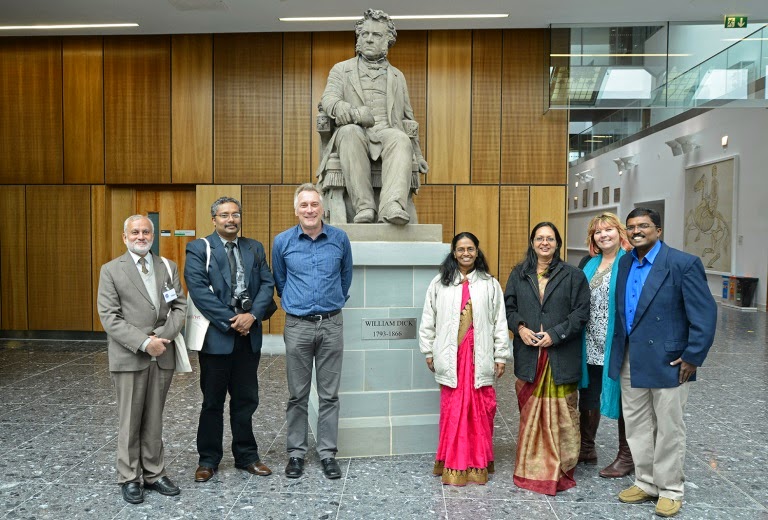Mark Farnworth
recently joined us for a nine week sabbatical from Unitec Institute of
Technology in New Zealand to work with the centre in exploring sterilisation of
free-roaming dogs in developing nations, a project funded by the UK DogsTrust.
Despite originally working with pigs at SRUC his move to New Zealand resulted
in a particular interest around the local cat population. So much so he has
recently completed his PhD looking at how and when cats are sterilised in New
Zealand, Australia and the UK. In addition he took the first steps to
establishing a thermal carbon dioxide laser as a non-invasive method for
assessing pain in cats with a view to applying his findings to cats which have
undergone sterilisation.
Cats are particularly interesting in New Zealand as is the case for other countries where mammalian predators are either scarce or wholly absent. Cats represent an introduced species with a marked effect on native wildlife meaning many see them as a pest, however, simultaneously they are the most populous (and likely most loved) of New Zealand's companion animals. This has resulted in cats being treated with ambivalence both socially and legislatively. How the cat population is or should be managed to improve both the cats' welfare and reduce their negative impacts is not an easy one to answer. However a suite of studies in New Zealand and Australia hope to provide some of the answers.
Outside his work with cats Mark is particularly interested in how animal welfare is integrated into people's everyday lives and the decisions they make. He has explored topics as diverse as public perception of the welfare of fish during angling to the management of free-roaming dogs in the Pacific Islands.
Cats are particularly interesting in New Zealand as is the case for other countries where mammalian predators are either scarce or wholly absent. Cats represent an introduced species with a marked effect on native wildlife meaning many see them as a pest, however, simultaneously they are the most populous (and likely most loved) of New Zealand's companion animals. This has resulted in cats being treated with ambivalence both socially and legislatively. How the cat population is or should be managed to improve both the cats' welfare and reduce their negative impacts is not an easy one to answer. However a suite of studies in New Zealand and Australia hope to provide some of the answers.
Outside his work with cats Mark is particularly interested in how animal welfare is integrated into people's everyday lives and the decisions they make. He has explored topics as diverse as public perception of the welfare of fish during angling to the management of free-roaming dogs in the Pacific Islands.
For more information about Mark and his research you can always visit https://www.researchgate.net/profile/Mark_Farnworth
or http://scholar.google.co.uk/citations?user=TZlDQp8AAAAJ&hl=en








